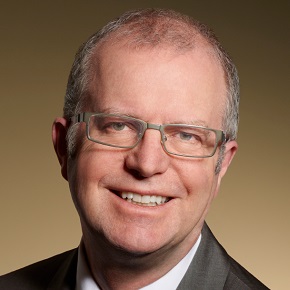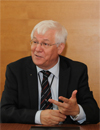 |
||
|
Summary of TVEL Fuel Company economic activities in 2013 PR Department of TVEL JSC, PUBLISHED 22.12.2013 Preliminary estimates of ROSATOM’s TVEL Fuel Company’s 2013 financial and economic performance show 16.8% EBITDA growth as compared to that of 2012 (RUB 42,668 mln in 2012); 14% growth in net income (RUB 19,642 mln in 2012); and 7.7% growth in sales proceeds (RUB 121,958 mln in 2012). In 2013, TVEL JSC’s export proceeds are expected to exceed USD 1.4 bln. The results of major project implementation, particularly in the area of foreign economic activities, have been summarized. The year 2013 was marked by the dynamic development of cooperation within the framework of the project for the construction of a nuclear fuel plant in Ukraine using the Russian technologies. In the current year, the project reached its investment phase and on-site preliminary operations were commenced. Design documentation development has been finalized and manufacturing of the equipment for the phase-one productions is already being completed. TVEL Fuel Company has fulfilled its obligations on financing the Nuclear Fuel Plant in Ukraine Project in strict accordance with the schedule by transferring USD 42 ml to the account of the Joint Venture – Nuclear Fuel Plant in Ukraine, Private Joint-Stock Company. The Ukrainian JV shareholder – Nuclear Fuel State Concern – is supposed to invest the equivalent amount into the JV by December 31, 2013. In 2014, the main construction works should be launched on at the construction site in order to ensure plant commissioning in 2015. The construction of the fabrication plant in Ukraine would provide the only valid and cost effective tool for the diversification of fuel supplies for the Ukrainian NPPs. On October 19, 2013 in Beijing, TVEL FC, Jiangsu Nuclear Power Corporation (JNPC), and China Nuclear Energy Industry Corporation (CNEIC), for the purpose of strengthening the Russian-Chinese partnership, signed a contract amounting to over USD 1 bln. The contract provides for Russia-to-P.R.C. supplies of the modified nuclear fuel for the Tianwan NPP units as well as for the transfer of components for further fabrication of this fuel in China. The Tianwan NPP was converted to the cost effective 18-month fuel cycle operation. In November, 2013, TVEL Fuel Company shipped TVS-2M fuel for the purpose of the 7th refueling of the 1st unit of the Tianwan NPP. The fuel was fabricated by Novosibirsk Chemical Concentrates Plant (JSC NNCP within TVEL JSC’S management circuit). On November 8, 2013, the Yibin Fuel Factory passed qualification. Production line design evaluation and equipment supplies were accomplished by the Russian party. The Yibin Fuel Factory fabricates modified TVS-2M fuel for the 2nd unit of the Tainwan NPP using the Russian-origin components. The Russian party intends to maintain further cooperation with China both in terms of new PWR construction and in terms of implementing joint projects on offshore NPPs development and nuclear fuel supplies. In September, 2013, the Russian-Kazakh enterprise successfully closed the deal on acquisition of the block of shares in the Russian enrichment plant – Joint-Stock Company Ural Electrochemical Integrated Plant. The deal resulted in Uranium Enrichment Center (UEC) JSC becoming a holder of 25% plus one share in JSC UEIP. The Joint Venture will have access to 5 million SWUs (separative work units) on an annual basis. The project implementation period is 30 years. On November 1, 2013, within the framework of the UEC Project, the first batch of products in the amount of 300 thousand SWUs was shipped. Successful deal closing provided additional proofs of the parties’ serious intentions to deepen cooperation and integrate the nuclear power industries of the two countries. Obviously, the practical implementation of the Project would boost the realization of other cooperation areas provided for in the integrated program. Over the first six months of the year, CANDU Energy, the Canadian Company, provided its official statement whereby Chepetsk Mechanical Plant (the Udmurt Republic), incorporated in the Fuel Division of Rosatom State Atomic Energy Corporation, was acknowledged as a qualified manufacturer of reactor pressure tubes. The experts of CANDU Energy and Atomic Energy of Canada Limited (AECL), the State Canadian Company, have conducted qualification tests of the enterprise’s production process and products performance. Successful qualification results enables the company to participate in tenders on supply of the pressure tubes for customers not only in Canada but also in Argentina, Romania, India, Korea, China, and other countries having CANDU reactors constructed in their territories. According to WNA, there are 31 CANDU reactors currently in operation world-wide. The ceremony of transfer to the customer of the 3,000th Fuel Assembly (FA) which was fabricated within the framework of partnership with Areva Gmbh, the Franco-German Company, was held at MSZ JSC (town of Electrostal). Cooperation between MSZ JSC and AREVA began in 1994 with the fabrication of the nuclear fuel for PWR and BWR reactors using regenerated uranium. Currently 10 PWR and BWR reactors at the NPPs in Western Europe (Sweden, Switzerland, the Netherlands, Germany, and Great Britain) use the nuclear fuel manufactured by MSZ JSC. Other news: Rosatom Boosts Foreign Orders Portfolio to $74 Bln Rosatom signed in Helsinki an expected deal with Finnish nuclear consortium Fennovoima on the construction of a 1,200-megawatt Hanhikivi-1 nuclear reactor in Pyhajoki, northwest Finland. First Chapter of US-Russian Megatons-to-Megawatts Deal Closes Russia started delivery of the last batch of low-enriched uranium to the United States under a long-standing program to convert Soviet-made nuclear weapons into fuel. Russia Starts Building Largest-Ever Nuclear Icebreaker The yet-unnamed ship, to be powered by two nuclear reactors, will be 14 meters (46 feet) longer and four meters (13 feet) wider than the current largest, the 50 Let Pobedy (50 Years of Victory). |
Hero of the day 
We are currently working with the Nuclear Decommissioning Authority (NDA) on this approach, which was submitted in response to their February 2012 call for alternative proposals. We appreciate that the UK is in the early stages of their policy development activities and are pleased to be involved in such important work. INTERVIEW
Yanko Yanev OPINION
Joint Plan of Action |

